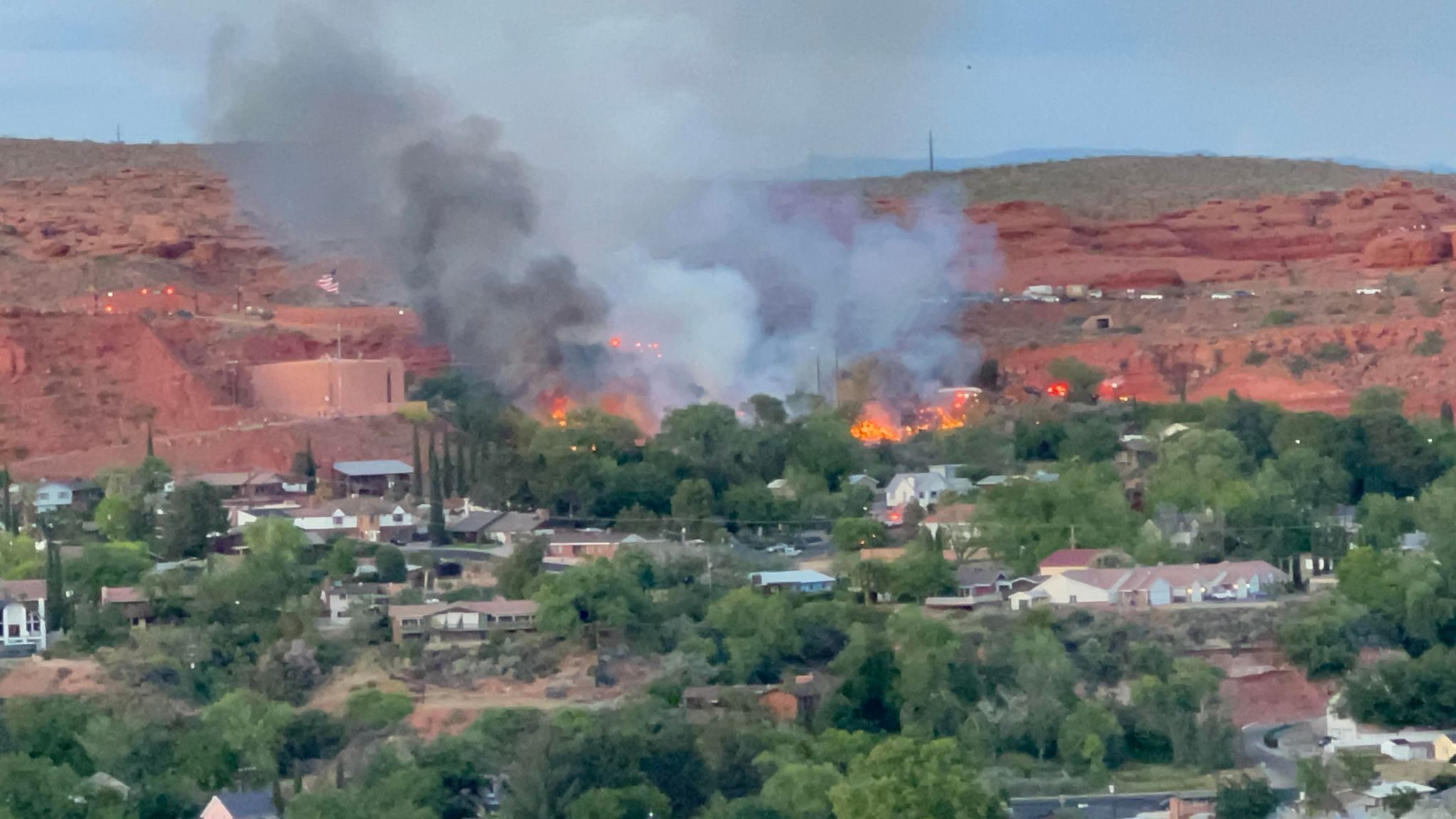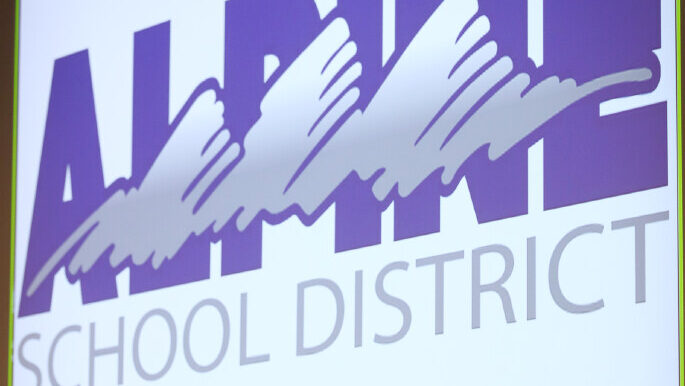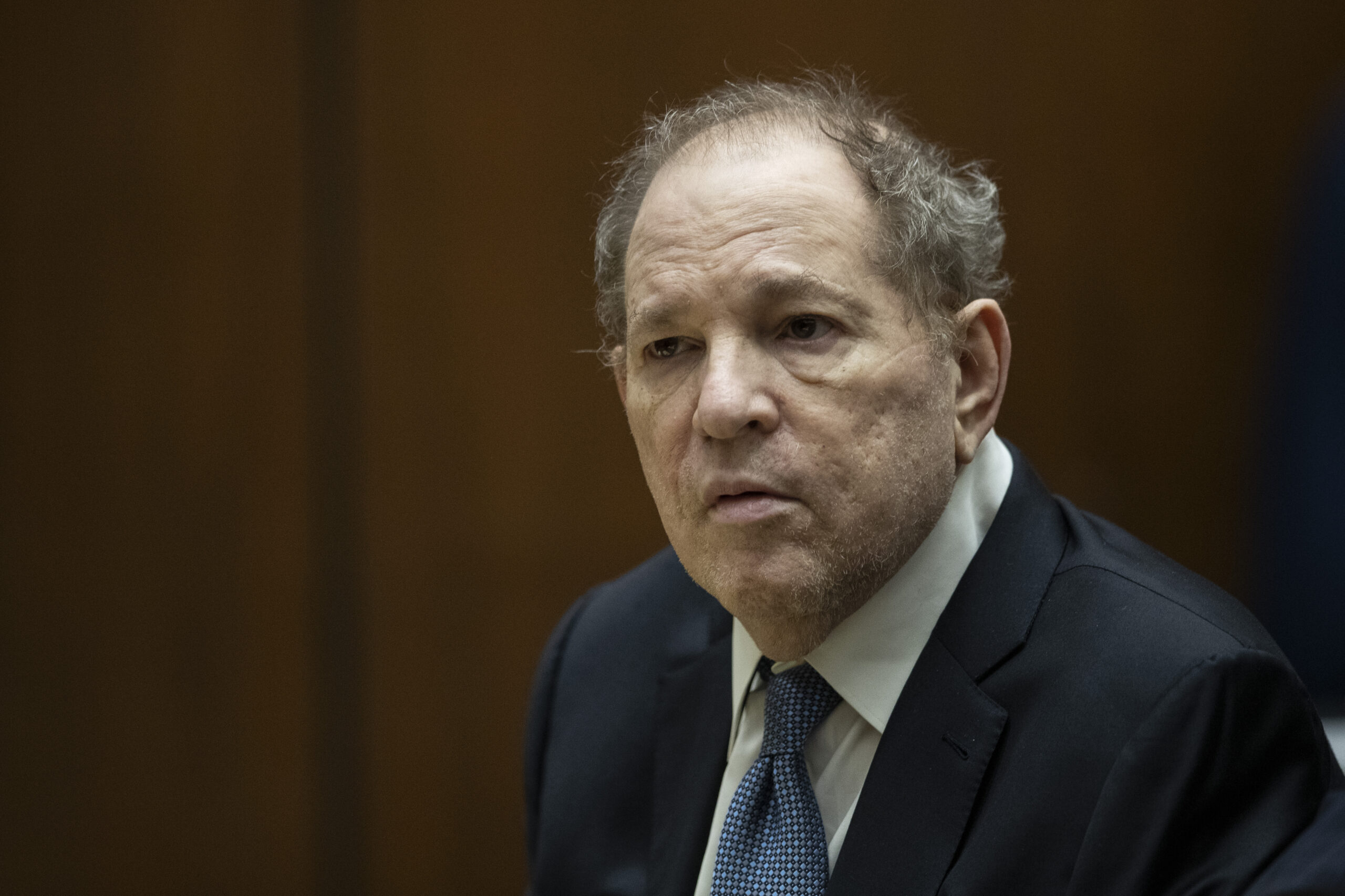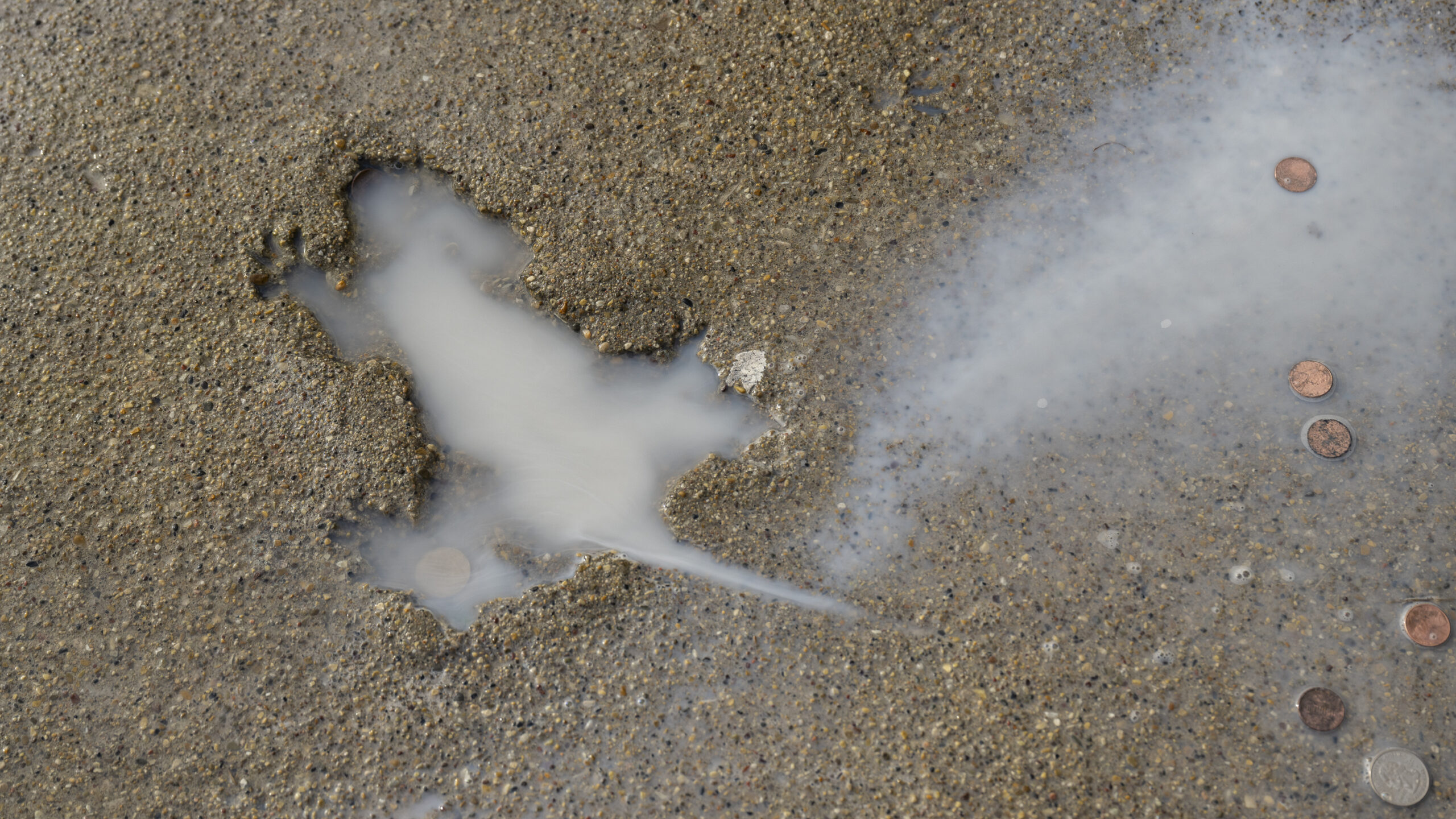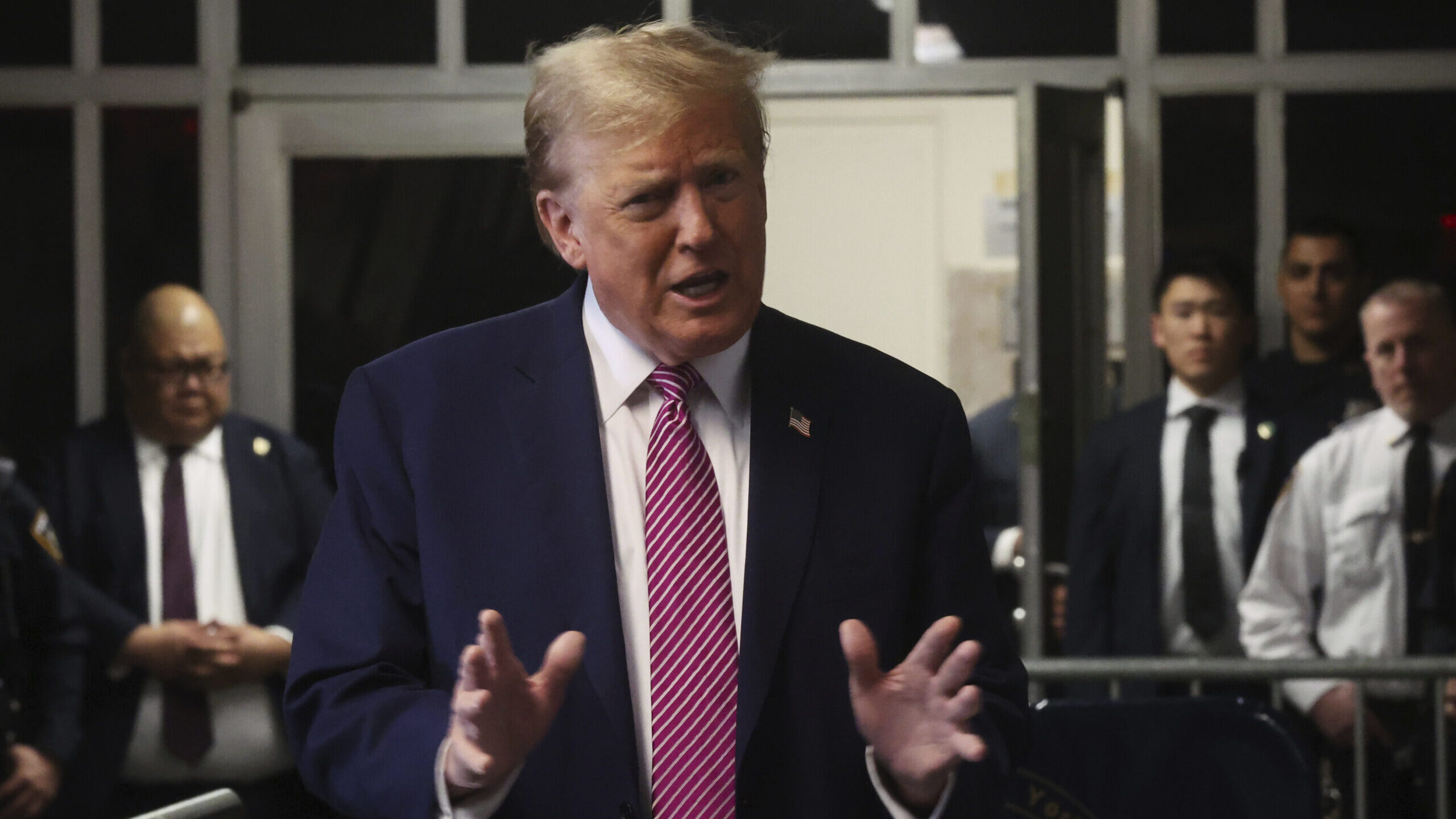Dow dives 2,999 points on fears virus will cause recession
Mar 16, 2020, 2:20 PM
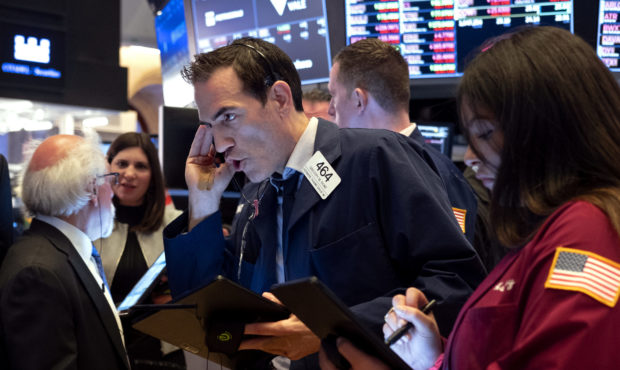
Trader Gregory Rowe, center, and others work on the floor of the New York Stock Exchange Monday, March 16, 2020. (AP Photo/Craig Ruttle)
(AP Photo/Craig Ruttle)
NEW YORK (AP) — The Dow industrials took a 2,999-point nosedive on Monday as fears deepen that the coronavirus outbreak will throw the global economy into recession. Even for a market beset by volatility in recent weeks, the losses were staggering.
The 12.9% drop in the Dow was its worst since 1987. The losses accelerated in the last hour of trading as President Donald Trump advised Americans to avoid large gatherings. He also said he sees a chance of recession and promised help to the struggling airline industry. The losses came as huge swaths of the economy come closer to a standstill due to the outbreak as businesses and travel shut down.
THIS IS A BREAKING NEWS UPDATE. AP’s earlier story follows below.
Stocks fell sharply around the world Monday as the coronavirus forced huge swaths of the economy to the edge of a standstill, from parked airplanes to the nearly empty restaurant around the corner.
The losses accelerated on Wall Street in the afternoon, and the S&P 500 was on track for a 9% loss.
The Federal Reserve announced a new round of emergency actions late Sunday to prop up the economy and get financial markets running smoothly again, but the moves may have raised fears even further.
Investors are also waiting for the White House and Congress to offer more aid to an economy that’s increasingly shutting down by the hour.
The selling began immediately on Wall Street, sharp enough to trigger a temporary trading halt for the third time in the last two weeks. Losses were even sharper in Europe before paring, and major indexes there fell between 4% and 6%. Oil lost 9.5% and has more than halved this year. The world’s brightest spot may have been Japan, where the central bank announced more stimulus for the economy, and stocks still lost 2.5%.
“It’s impossible to say when and how we’re going to reach bottom,” said Danielle DiMartino Booth, chief executive officer of Quill Intelligence.
The spreading coronavirus is causing businesses around the world to shut their doors. While that can slow the spread of the virus, it’s also taking cash out of the pockets of businesses and workers. That has economists slashing their expectations for upcoming months, and Wells Fargo Securities said Monday it now projects the U.S. economy will fall into a recession in the April-through-June quarter. Joel Prakken, chief U.S. economist at IHS Markit, projects the economy will shrink at a 5.4% annualized rate during the quarter, which would be its worst performance since the depths of the Great Recession.
The best-case scenario for many investors is that the economic shock will be steep but short, with growth recovering later this year after businesses reopen. Pessimists, though, are preparing for a longer haul. The range of possible outcomes has Wall Street swinging wildly, and the S&P 500 is on track for a third straight day where it moved 9% — two down and one up.
Strategists at Goldman Sachs say the S&P 500 could drop as low as 2,000 in the middle of the year, which would be a 41% drop from its record set just a month ago. Goldman expects the index to rally back to 3,200 at year end.
The losses are the steepest since the 2008 financial crisis, but many analysts caution investors not to confuse the two. In 2008, investors were worried that the financial system itself may melt down after gorging on too much debt and even that ATMs may no longer dispense cash. This time, the shock is coming from outside the financial system. Optimists hope that if health experts can slow the spread of the virus soon, the economic pain could also be relatively short-lived, even if it is severe.
For most people, the coronavirus causes only mild or moderate symptoms, such as fever and cough, and those with mild illness recover in about two weeks. But severe illness including pneumonia can occur, especially in the elderly and people with existing health problems, and recovery could take six weeks in such cases.
American Airlines and United Airlines both announced steep cutbacks to flights over the weekend as customers cancel trips and the U.S. government restricts travel. Other travel companies have also seen sharp drops in demand from customers. Restaurants, movie theaters and other businesses that depend on drawing crowds appear to be next to get squeezed. Several states and the country’s largest city are ordering restaurants to close their doors to dine-in customers and do only takeout and delivery.
The Federal Reserve has been trying to do what it can to help the economy, and over the weekend it slashed short-term interest rates back to their record low of nearly zero.
It also said it also will buy at least $500 billion of Treasury securities and $200 billion of mortgage-backed securities to help calm the Treasury market, which is a bedrock for the world’s financial system and influences stock and bond prices around the world. Trading in the market began to get snarled last week, with traders saying they saw disconcertingly large gaps in prices offered by buyers and sellers.
“Despite whipping out the big guns,” the Fed’s action is “falling short of being the decisive backstop for markets,” said Vishnu Varathan of Mizuho Bank in a report. “Markets might have perceived the Fed’s response as panic, feeding into its own fears.”
The yield on the 10-year Treasury slid to 0.72% from 0.95% late Friday, a sign that investors are flocking into investments seen as safe.
The Fed action came as major economies expanded travel curbs and closed more public facilities, raising the cost of efforts to contain the outbreak that has infected about 175,000 people worldwide. China, where the coronavirus emerged in December, accounts for about half of those, but a dozen other countries have more than 1,000 cases each.
Japan’s central bank similarly expanded asset purchases to inject money into the economy and promised no-interest loans to help companies cope with the crisis. The measures came on top of announcements from other major central banks, including the European Central Bank and the Bank of England last week.
The S&P 500 fell 9%, as of 2:45 p.m. Eastern time. It had been down as much as 11.4% earlier in the morning, and it has lost about 27% since setting a record high Feb. 19. It’s back to where it was at the start of 2019, which was one of the stock market’s best years in decades.
The Dow Jones Industrial Average lost 2,269 points, or 9.8%, to 20,916. The Nasdaq was down 9.5%.
After the Fed unloaded its bazooka on markets late Sunday, investors are looking for more help from the U.S. government, according to Brian Nick, chief investment strategist at Nuveen. That includes targeted aid to industries hit hard by the virus, as well as checks sent out to households.
“We have to be careful that small businesses don’t get forgotten,” said Jason Pride, chief investment officer of private wealth at Glenmede.
Lower interest rates following the Fed’s moves will help them borrow cash at more affordable prices, but they’ll need more direct help.
Volatility appears to be the new normal following a dizzying week in which the Dow twice fell by more than 2,000 points and also record its biggest point gain ever — 1,985 points on Friday. Last week’s drops also confirmed the end of the longest-ever bull market on Wall Street, which emerged from the financial crisis and ran for nearly 11 years.
Many investors expect markets to remain volatile as long as the number of new infections keeps accelerating.
___
AP Business Writer Joe McDonald contributed from Beijing.
___
The Associated Press receives support for health and science coverage from the Howard Hughes Medical Institute’s Department of Science Education. The AP is solely responsible for all content.
___
Follow AP coverage of the virus outbreak at https://apnews.com/VirusOutbreak and https://apnews.com/UnderstandingtheOutbreak



